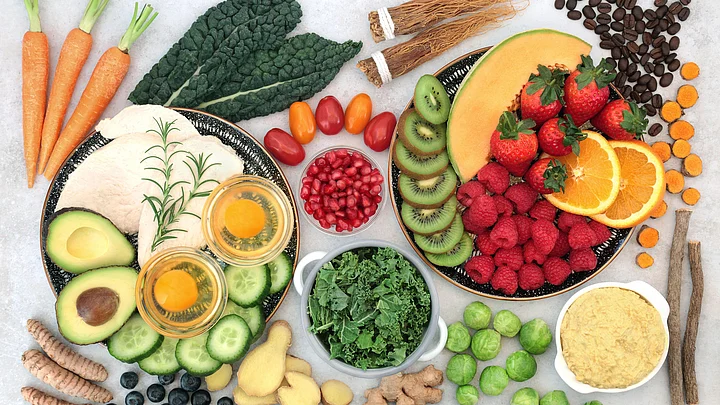Inflammation is a normal and natural part of our body's immune response.
But it is long term or chronic inflammation that one needs to avoid at all costs as that can lead to severe damaging effects in the body.
So whether it's fatigue, body aches, joint pains, chronic headaches, unexplained weight gain, low immunity leading to frequent colds and flu, gastro issues like bloating, indigestion, heart burn, or skin troubles like unexplained rashes.
Most of these issues usually trace back to high levels of chronic inflammation in our body, the kind that happens internally and over a longer period of time, and is a response to a larger problem within the body.
In fact, chronic inflammation is often where many chronic health conditions begin.
What is worse is that chronic inflammation can lead to arthritis, metabolic syndrome, decline in brain health, liver disease, osteoporosis, cancer, asthma, autoimmune diseases, allergies, irritable bowel syndrome, and early ageing.
Now that’s a long list of maladies! To this, you can even add weight gain. That is why eating a non-inflammatory diet is very important.
There are a number of plant based compounds that can effectively keep inflammation in check and inflammatory diseases at bay.
Consistency Is the Key
The solution is more diverse than taking a ginger and turmeric shot every now and then, or buying the newest superfood being marketed aggressively.
It needs constant careful inclusion of phytonutrients that help in our diet. Ideally everyday of your life.
So What Are Phytonutrients?
They are bioactive compounds that are potent disease scavengers, and help cut inflammation, and boost the immune system to keep diseases away and sometimes also help reverse them.
They are different from vitamins, minerals, and macronutrients like proteins, carbohydrates, and fats and are found in fruits and vegetables, many spices, and even edible flowers.
Some important ones that display antioxidant properties, help alleviate inflammation, slow down ageing and cut cancer risk are mentioned below. Focus consciously on these.
EGCG
Epigallocatechin gallate (EGCG) is the most abundant catechin (also known as tea flavonoids) in green tea. In fact green tea has six times more than black tea and matcha has a staggering 137 times more antioxidants than green tea.
A cup or two a day of these is a great idea.
Gingerol
This phenol phytochemical compound is found in fresh ginger. Add thin slices to your tea, have it add to your smoothies, dals, subzis liberally.
Hydroxytyrosol
This is a phenolic phytochemical that occurs naturally in extra virgin olive oil and olives. Add olive oil to salads, stir fry vegetables in it and add olives to your dishes.
Cinnamaldehyde
This compound gives cinnamon its flavour and oduor. Add a pinch of cinnamon to your teas, add to all baked dishes.
Carnosol
Carnosol is a naturally occurring bioactive phytopolyphenol found in rosemary thyme basil oregano. Sprinkle these herbs liberally on your food.
Curcumin
This is a mesonutrient whose rise in the last decade to the status of super stardom has been meteoric. And thanks to that turmeric, the spice that delivers this component curcumin is today considered the gold standard compound in nutrition.
Just warm up some milk, add some pure powdered haldi to it and a pinch of pepper. Or just boil some milk with shavings of kacchi (raw) haldi root, sprinkle some pepper and drink at night before going to sleep.
Resveratrol
This is a plant compound that acts like an antioxidant. The top food sources include red wine, grapes, some berries and peanuts.
Include these in your daily diet.
Kaempferol
Kaempferol is a natural flavanol, found in a variety of plants and plant-derived foods including kale, beans, tea, spinach, broccoli, strawberries, citrus fruits, green and yellow bell peppers, almonds and pistachios.
Eat these by rotation.
Genistein
This is a phytoestrogen that is mainly derived from legumes. The best known sources of genistein are soy-based foods, such as tofu and soy drinks.
Even chickpeas and sprouts deliver it. Focus on these foods
Quercetin
Quercetin is a flavonoid found naturally in many plants and foods like apples, grapes and broccoli.
Cocoa, cranberry juice, lemon juice, red wine (yes, a little bit of this tipple is good for us), raw red onions, kale and spinach, and apple are good sources.
Finally
All these compounds can be found in your food and drinks and are most beneficial when had whole in the plant form, instead of as isolates.
All you need to do is make constructive changes in the way you eat, for example have green tea instead of coffee, dark chocolate instead of sugary treats, munch on berries instead of junk, have peanuts as often as possible.
Also experiment with new foods like leeks (try leek soup).

